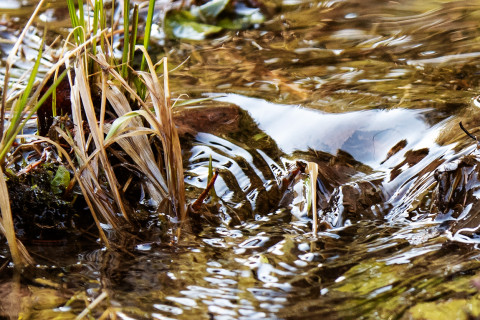The doctoral dissertation in the field of Forest Sciences will be examined at the Faculty of Science, Forestry and Technology, Joensuu Campus.
What is the topic of your doctoral research? Why is it important to study the topic?
Soil pollution caused by metals like Zn, Cu, and petroleum hydrocarbons such as benzene, and toluene is a major environmental issue due to changes in land use and other factors. Contaminants negatively impact the environment, leading to deforestation and endangering human health. Therefore, it is crucial to find environmentally friendly and cost-efficient solutions to overcome these problems and for soil remediation.
Phytoremediation is an eco-friendly and efficient solution for cleaning up contaminated sites. Its efficiency can also be improved by either enhancing the ability of plants to take up pollutants or by ameliorating the soil to accelerate the mobility of the contaminants. Fast-growing woody plants like Populus and Salix are relatively tolerant of pollutant toxicity, capable of accumulating metals and removing hydrocarbon, and producing still large amounts of biomass, that all are suitable for phytoremediation. Appropriate plant species, with or without soil amendments, depending on the type of soil pollution, may simultaneously offer good survival and growth as well as phytoremediation capacity in polluted sites.
However, a better understanding is still needed of the survival, growth, and phytoremediation potential of different woody plant species, like Populus and Salix, for example, in soils polluted heavily with hydrocarbons and metals.
What are the key findings or observations of your doctoral research?
Some hybrid aspen and European aspen clone seedlings survived and grew well and showed good hydrocarbon removal potential. Salix psammophila seedlings also survived and grew well and showed good metal accumulation rates from the soil as supported with bamboo biochar amendment. In addition to producing biomass for energy purposes, these plants could also be used to depollute areas affected by hydrocarbons or Cd and Zn, respectively, improve soil and water quality, and rehabilitate ecosystems that were damaged by such pollutants.
How can the results of your doctoral research be utilised in practice?
The results can be used to provide an ecologically sound solution for the remediation and utilization of mining areas, industrial areas, abandoned agricultural fields, contaminated landfill sites, and other infected areas that are polluted with similar levels of metals and hydrocarbon. The information contained in this phytoremediation method would be useful for private companies, under the supervision of ELY (Economic Development, Transport and the Environment) centres, for the clean-up of polluted sites to improve the quality of life in the surrounding area.
What are the key research methods and materials used in your doctoral research?
Three European aspen clones (R2, R3, and R4), seven hybrid aspen clones (14, 27, 34, 134, 172, 191, and 291), and Salix psammophila seedlings were used as plant materials, Hydrocarbon- and metals-contaminated soil used as soil materials. A standard analytical method, US EPA 3540C (US EPA 1996) was used to determine hydrocarbon concentrations in the soil, using chromatography and mass spectrometry. Inductively coupled plasma atomic emission spectrometry (Perkin Elmer Optima 8000, Waltham, MA, USA) was used to determine the metal concentrations of the dried samples (leaves, stems, and roots) of seedlings and the metal content of the soil.
The doctoral dissertation of Mir Md Abdus Salam, MSc, entitled Evaluation of survival, growth, and phytoremediation potential of Populus and Salix seedlings grown in polluted soils will be examined at the Faculty of Science, Forestry and Technology, Joensuu Campus. The opponent will be Research Professor Hannu Ilvesniemi, Natural Resources Institute Finland, and the custos will be Professor Heli Peltola, University of Eastern Finland. Language of the public defence is English.
For more information, please contact:
Mir Md Abdus Salam, [email protected], tel. 041 318 8210



